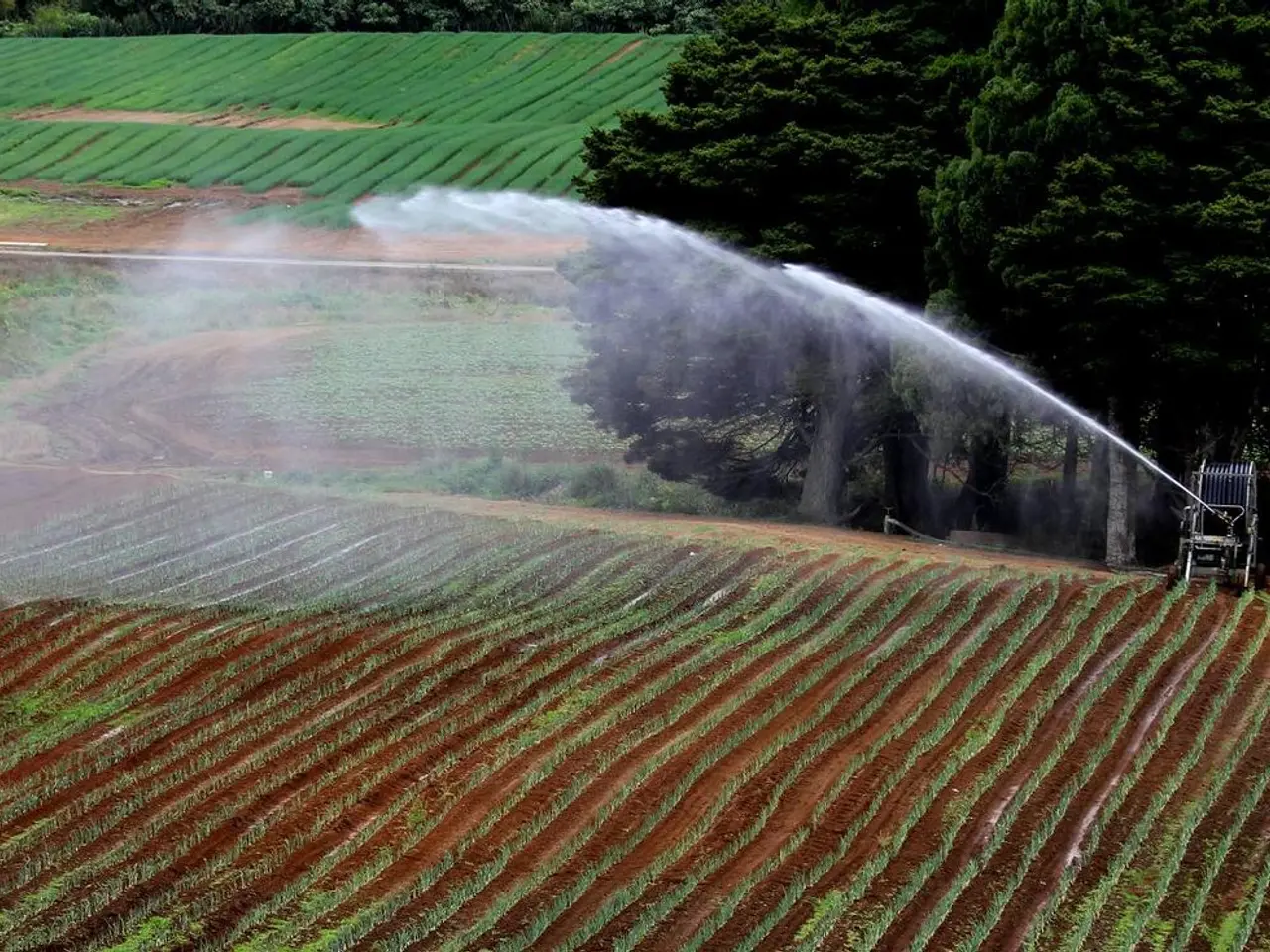Japan's $100 million financing of AI-driven farming in Africa underscores its increasing technological emphasis on addressing Africa's infrastructural shortcomings in the field.
Japanese Technology Partnership Transforms Ghana's Agriculture and Health Sectors
In a groundbreaking move, Ghana has seen a significant transformation in its agriculture and health sectors, thanks to a strategic technology partnership between Japanese companies.
At the heart of this collaboration is Degas, a global agri-fintech player, which has committed $100 million over the next four years to turn Ghana into Africa's first AI-powered agricultural hub. The company's investment will expand AI-supported farmer financing, satellite-enabled crop monitoring, precision agronomy services, and supply chain integration in Ghana.
Degas's efforts have already borne fruit, with the company financing 86,000 smallholder farmers across 122,000 acres in Ghana. Using AI-powered satellite monitoring, Degas provides farmers with real-time agronomic advice and financial services, leading to a doubling of farmer incomes and a remarkable 95% loan repayment rate.
Sakura Internet, a Japanese provider of GPU cloud services, is part of the technology partnership between Sojitz Corporation and Degas. Sojitz Corporation, a major Japanese trading house, is involved in a robust, multi-layered technology partnership with Degas, using a "geospatial foundation model" for satellite image analysis, weather forecasting, natural disaster prediction, and crop yield forecasting.
The collaboration between Degas and Ghana involves deploying a high-tech approach using satellite imagery, precision agronomy, and AI-driven financing to tackle food security challenges on the continent.
In the health sector, SORA Technology, a Tokyo-based company, has raised $4.8 million to expand its drone and AI-powered health infrastructure across Africa. SORA Technology operates in six African countries, including Ghana and Kenya, and uses drones for malaria vector control and AI-driven disease forecasting.
Zipline, an American-owned company, has become a cornerstone of Africa's health supply chain, performing over a million commercial deliveries in countries such as Ghana, Rwanda, and Nigeria. The success of Zipline has been supported by Japanese partners, including a key distribution partnership with Toyota Tsusho.
Many Japanese partners now view Ghana's integrated approach as the gold standard for agricultural investment in Africa. Japanese technology startups and their corporate backers are increasingly targeting Africa's critical infrastructure gaps in sectors like agriculture and health.
SORA Technology plans to scale its operations to 15 African countries, backed by Japanese VCs like Nissay Capital and SMBC Venture Capital. The company's drone and AI-powered health infrastructure aims to address logistical and health challenges across Africa.
Doga Makiura, CEO and founder of Degas, stated that Ghana has demonstrated that when technology aligns with a national vision, smallholder farmers can flourish. This partnership is a testament to the potential of technology-driven development in Africa, and a promising step towards a more sustainable and resilient future for the continent.
Read also:
- Recognition of Exceptional Patient Care: Top Staff Honored by Medical Center Board
- A continuous command instructing an entity to halts all actions, repeated numerous times.
- California Senator Kamala Harris announces she will not seek the governorship in 2026, instead hinting at future professional ventures.
- Survey on Life Prolongation Methods








